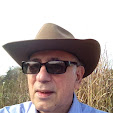One such avenue is microfinance.
With a PHD in economics from Vanderbilt University in 1965 , Professor Muhammad Yunus a native of Bangladesh returned to his country and was drawn to poverty reduction having witnessed the famine of 1974 (which had a mortality rate of over 1 million).
While head of the Economics Department at Chittagong University, he visited the nearby town of Jobra and he discovered here that small loans to the impoverished would make a big difference in their lives. He learned that the Jobra women had to pay usurious rates on loans they took to buy bamboo for their furniture making business. All their profits were quickly consumed.
His first loan of $27 to 42 women who each made a profit of (US$0.02) each on the loan was a boon to his country's ease of exporting and importing.
To quote wikipedia: "Yunis believed that given the chance the poor will repay the borrowed money and hence microcredit could be a viable business model."
On October 1, 1983, he founded the Grameen Bank (Village Bank) to make loans to his poor country citizens. As of July 2007, the bank had lent $6.38 billion to 7.4 million borrowers. To insure repayment solidarity groups or " small informal groups apply together for loans and
its members act as co-guarantors of repayment and support one another's efforts at economic self advancement." (Wikipedia)
In 2006, Yunis and Grameen Bank won the Nobel Prize for Peace.
The prize announcemnt reads that he has proven himself capable of translating "visions into practical action for the benefit of millions of people, not only in Bangladesh, but also in many other countries."
On March 1, 2010, KETV 7 of Omaha, Nebraska reported that Yunus opened the second branch of the Grameen Bank here in the US; the first branch opened previously in New York City ;
San Franciso will soon be the location of his next branch.
Today, October 27th, Camille Nestor, Vice President of microfinancing programs at Grameen Foundation will be in Greenwich, CT. to discuss how even loans as small as $100 can aid those-- too poor to qualify for traditional loans from commercial banks--to realize their dreams.


No comments:
Post a Comment